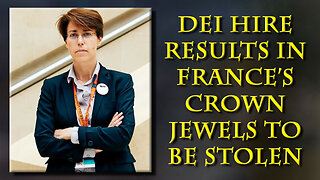Premium Only Content

Machiavelli in Context | Discourses: The Workings of a Good Republic (Lecture 14)
Lecture 14: As Machiavelli looks at the Roman Republic, he sees that it emerged out of a monarchical state that he traces back to Romulus. Machiavelli does not think that a republic can simply spring up or be a creation of a committee. It takes a strong man who is unafraid to act boldly. To dramatize this point, he even praises Romulus for killing his brother Remus.
Machiavelli also has high praise for Rome’s second king, Numa. It was he who established a moral structure by appealing to and manipulating religion. In fact, having a code to discipline individuals’ conduct is perhaps more important than laws and institutions.
While looking back at this earliest period of Rome’s history, Machiavelli also looks forward. He asks what will happen to a republic when its citizens become morally corrupted. He contrasts Numa’s “good” way of using religion with the way the leaders of the Catholic Church use it in his day.
Recommended Readings:
Machiavelli, Discourses on Livy, translated by Julia Bondanella and Peter Bondanella, Discourse I, chapters 7–33.
-
 30:46
30:46
The Great Courses
1 month agoGreat Pharaohs of Ancient Egypt | Ramses the Great: The Twilight Years (Lecture 8)
129 -
 27:54
27:54
Michael Franzese
2 hours agoDeep Dive Into The Epstein Crime Scene Mystery
14.2K8 -
 LIVE
LIVE
Dr Disrespect
7 hours ago🔴LIVE - DR DISRESPECT - BATTLEFIELD KILL CHALLENGE - vs BOBBYPOFF
1,692 watching -
 1:08:45
1:08:45
DeVory Darkins
5 hours agoLetitia James drops frantic speech after pleading not guilty as Canada gets NIGHTMARE NEWS
44.8K31 -
 LIVE
LIVE
ahdedazs
1 hour ago $0.70 earnedstage gameplay
79 watching -
 2:06:30
2:06:30
Tucker Carlson
6 hours agoCheryl Hines: Stories From “Curb Your Enthusiasm” and Sticking by RFK on His Way to the White House
158K89 -
 13:25
13:25
Cash Jordan
6 hours ago“INVASION” Convoy JAMS Freeway… ICE “Armored Units” FORCE Illegals BACK TO MEXICO
20.5K26 -
 LIVE
LIVE
Times Now World
16 hours agoPUTIN PRESSER LIVE | “We Won’t Be Intimidated” — Moscow Warns U.S. After Trump’s Oil Sanctions
192 watching -
 18:35
18:35
Odd Man Out
2 days agoFrance's shame of the century all for DEI pandering
25.7K96 -
 2:12:37
2:12:37
The Quartering
6 hours agoWe've Been Invaded By Low IQ Killing Machines
150K33